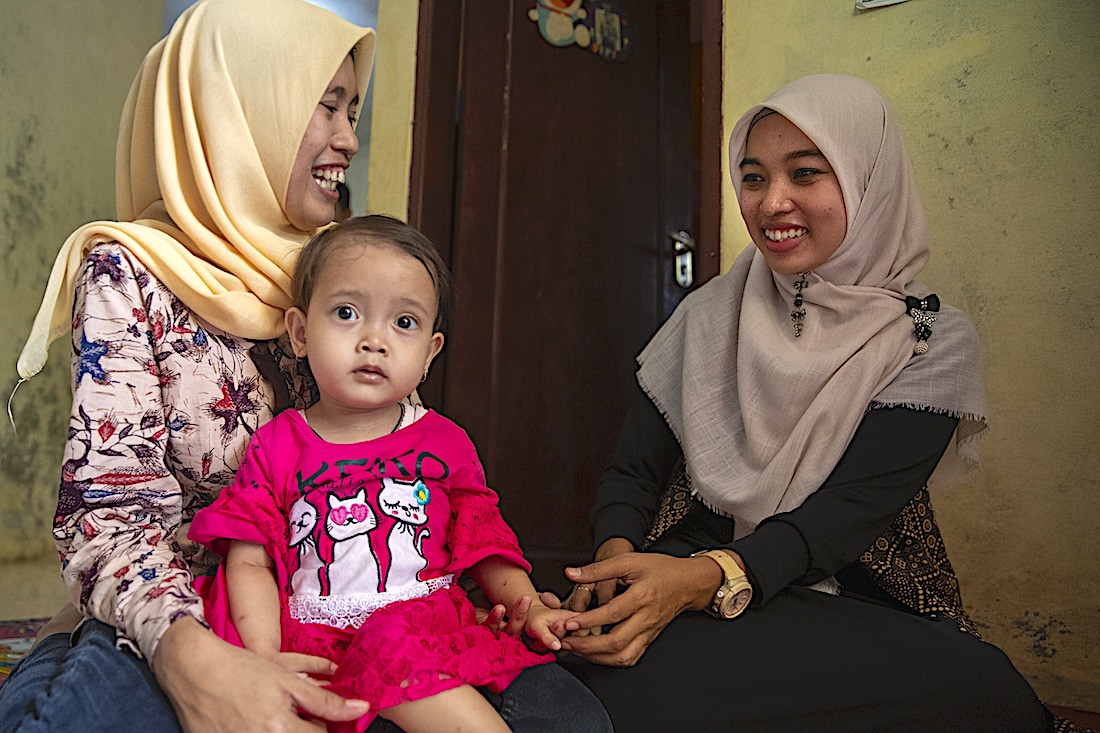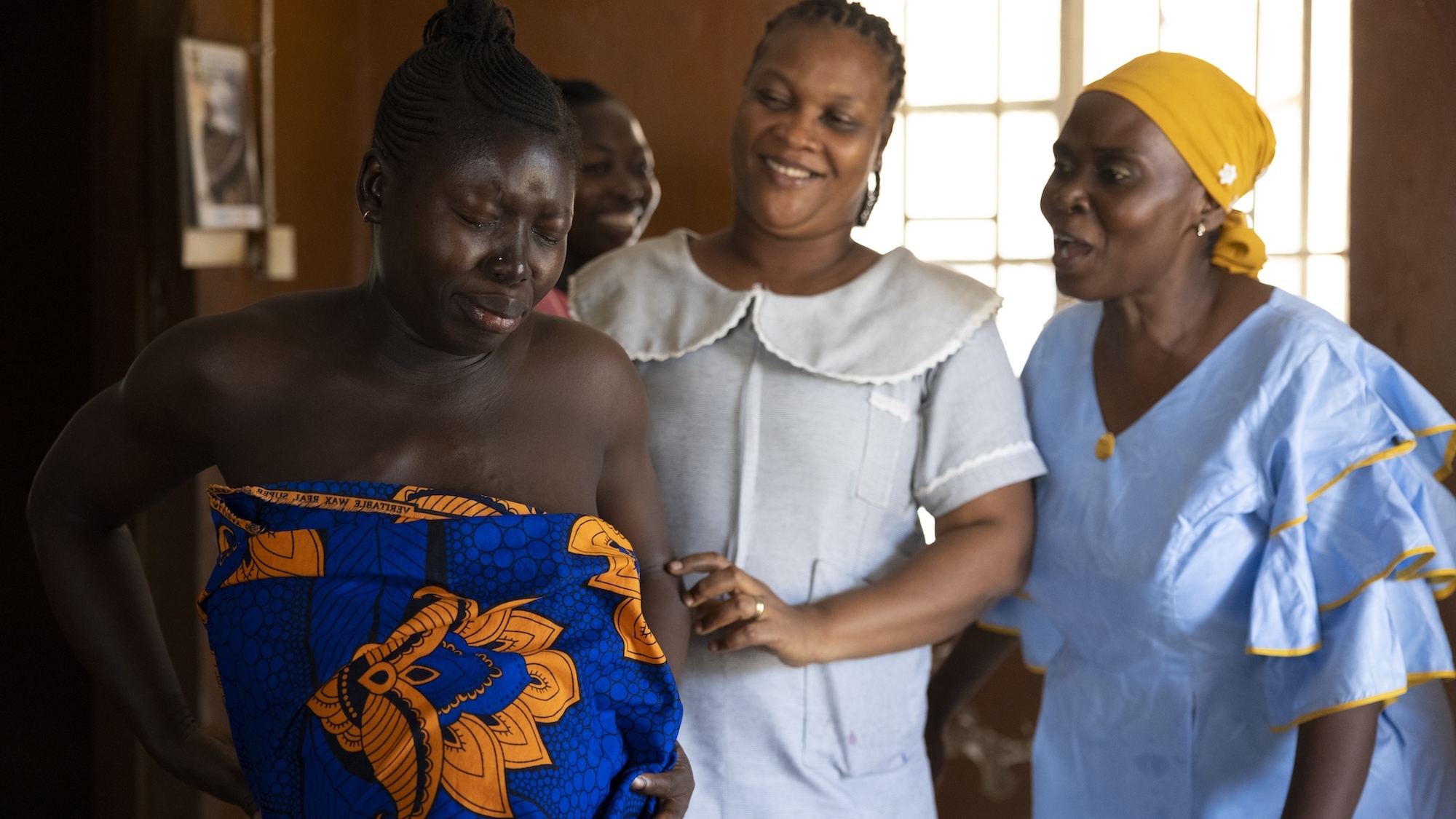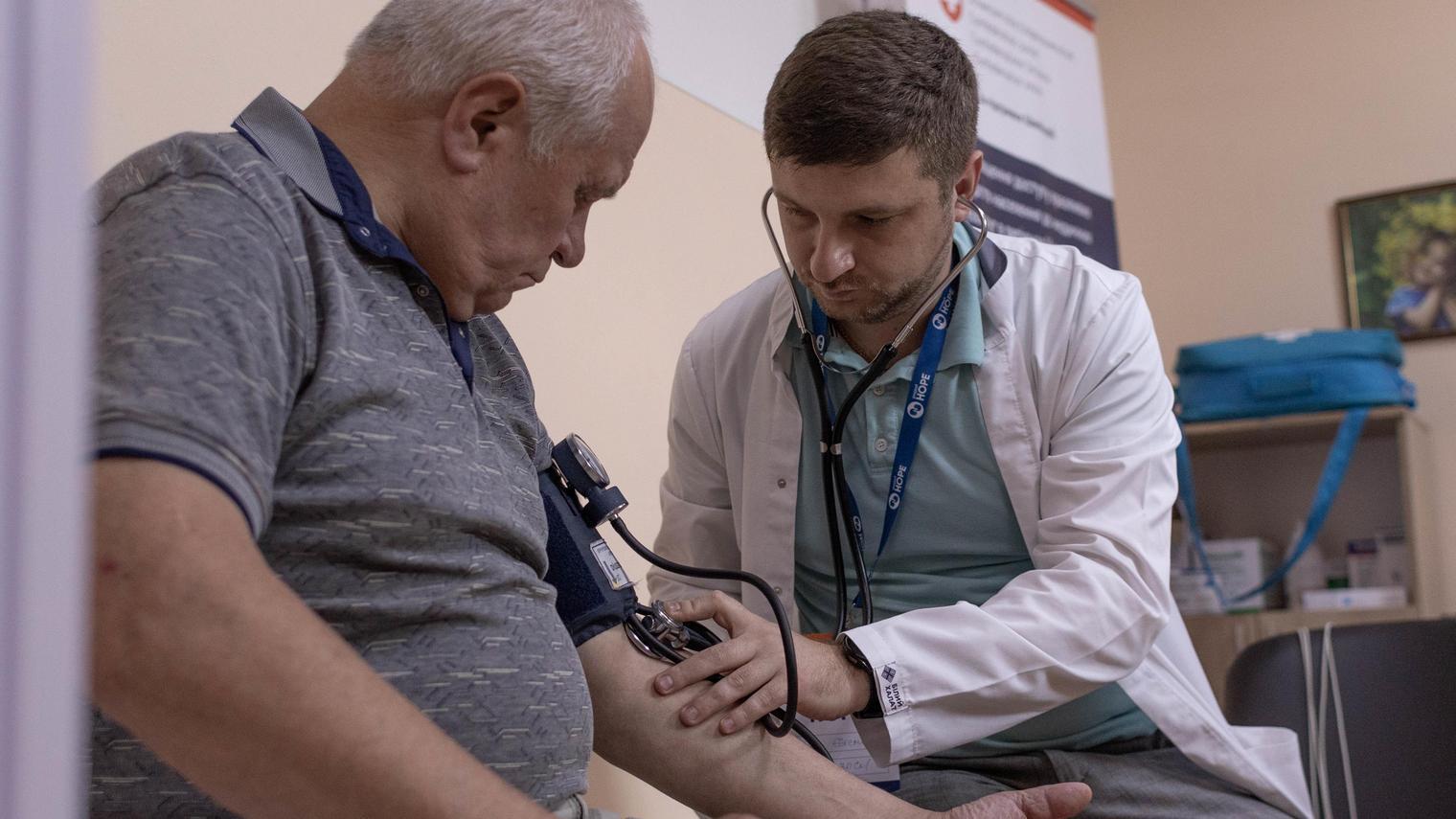In Rural Indonesia, A Midwife Can Mean Everything
Fewer than half of women in rural Indonesia give birth in health facilities. Thanks to Project HOPE, midwives like Fani are standing in the gap to protect women’s health and bring their babies safely into the world.

For fourteen years, saving lives has been part of Fani’s job description. So has building trust.
A few hours from the metropolis of Jakarta, Fani, 35, works as a midwife in the small village of Tambiluk, where women often go without skilled care during pregnancy and delivery. Though most women in Indonesia give birth while attended by skilled personnel, the country does not have enough health care workers to serve its population, and the ones who are there are not evenly distributed — particularly in rural areas.
Fani plays a critical role in connecting rural women to care, educating them on how to have a healthy pregnancy and encouraging them to deliver at local health centers instead of at home. Though she delivers around five babies every month, her work improves the odds for all the mothers and infants in her community.
Thanks to training from Project HOPE, she is better positioned to care for the women in her village and respond to complications at birth — whenever they arise.

What Causes Maternal Mortality?
The number of women and girls who die every year during pregnancy or childbirth has declined over the past two decades, yet more than 800 women still die from pregnancy-related complications every day.
Achieving Sustainable Development Goal 3 would save the lives of 1 million women worldwide.
Worldwide, the maternal mortality rate is 211 deaths for every 100,000 births. Achieving Sustainable Development Goal 3 would cut that number by two-thirds, to just 70. That achievement would save the lives of at least 1 million women worldwide.
The good news is, most of these deaths are preventable. And skilled health care workers play a major role.
Between 2014 and 2019, 81% of births worldwide had skilled health personnel present. In Indonesia, the number has grown from 69% in 2000 to 95% today — a major achievement for one of the most populous countries on earth. In rural areas, however, where 44% of the population resides, health care is often still inaccessible or unaffordable. Only 75% of rural births are attended by skilled health workers — a number that shrinks to just 57% in Indonesia’s poorest populations. Fewer than half of women in rural areas give birth in a health facility.
“As head of the district health center, I see that maternal mortality is still high,” says Agus Kusumah, head of the district health center in Tambiluk. “We are looking to improve the competency of health workers and also need to improve the facility.”

Connecting Women to Trusted Care
Project HOPE is helping accelerate those efforts, training midwives like Fani to stand in the gap between rural communities and formal care. When we met Fani in 2019, she had recently performed an emergency resuscitation that saved a newborn’s life in a rural community outside Serang. The skills she needed to save the four-pound baby were thanks to Project HOPE’s training on obstetric and neonatal emergencies — part of a larger program that trains local health care workers and supplies health centers (called puskemas) with equipment like delivery beds and resuscitation tables.
“When Project HOPE came here, I joined the training because as midwives, we have to improve our skills and refresh our knowledge so we can be more skillful in helping with deliveries,” Fani says. “I feel more confident and more skillful. Women trust me more because they see how I work, and they tell each other about me.”
Ntin, 30, met Fani at the local health outpost during her first pregnancy. During monthly checkups, Fani monitored her health in the lead-up to giving birth and advised Ntin to get good nutrition, rest, and to take proper vitamins and iron tablets. After a smooth delivery, Fani checked in regularly to ensure both Ntin and her baby stayed healthy.
“I tell my friends to have their delivery with Fani because she is very patient, very skillful, and very kind,” Ntin says. “If I have a complaint, I can just WhatsApp her. She responds quickly, like when I have a problem with my child’s health.”

The trainings not only helped Fani refresh her skills; they also taught her new information. Now, after delivery, she knows to place the baby on the mother for skin-to-skin contact to keep the baby warm and encourage it to breastfeed.
“I did not do skin-to-skin before the training,” she says. “I’m very happy to see the mom excited and to see how the baby learns to breastfeed.”
Thanks to the level of trust midwives like Fani have earned in their communities, it’s becoming more and more common for women to seek professional care when pregnant, Kusumah says. It’s a life-changing opportunity for women who otherwise would risk falling outside the main health system — in Tambiluk, and in surrounding villages.
“I see a significant change,” Kusumah says. “The benefit of this system and Project HOPE’s training is that the community is aware of the midwife and willing to go to her. Now, women are looking to the health system and trusting the puskesmas more.”



